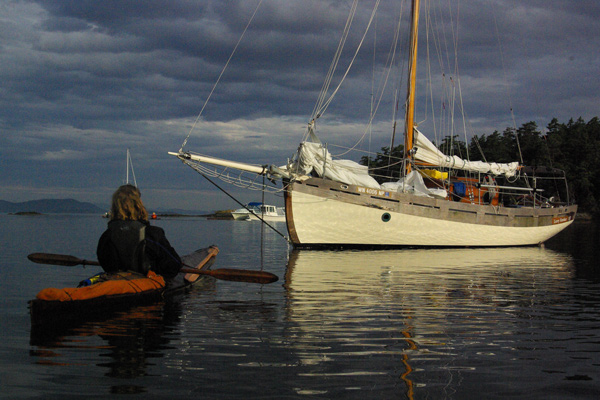
Paddling out from Sucia in the morning we pass this 25ft wooden sailboat, the Lizzie Hawker. It's love at first sight for me, and I tell Taylor "If I had that sailboat I would need nothing else in this life."
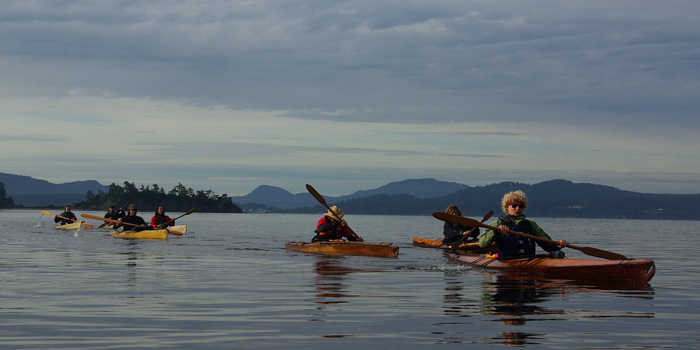
Stiff winds were predicted this morning but we manage to sneak across to Patos island on calm seas. Our group consists of five kayaks built under Kiliii's tutelage and three of my F1 prototypes. At home in the surf I am always refining the design and boats from even a month ago are considered worthless, my judgments are a bit harsh. It was nice to see that even the older boats toured beautifully and made me appreciate my work much more.
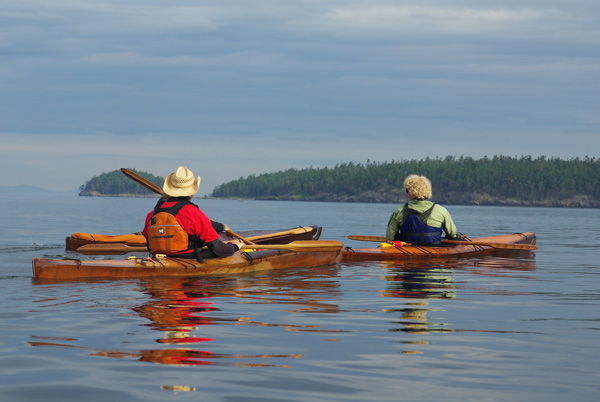
Noah is always leaping ahead. I told him, "If you don't stay with the group I swear I'll tie you to Claire and make you tow her. " I made good on my threat several times during the trip, which worked well for both paddlers.
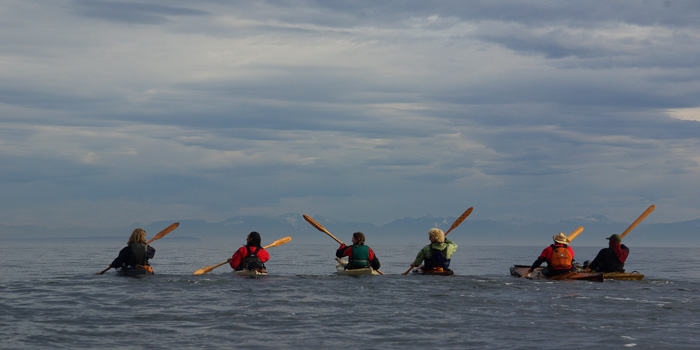
The group pushes forward, we are on a ferry angle here which is why there is no destination visible in the distance.
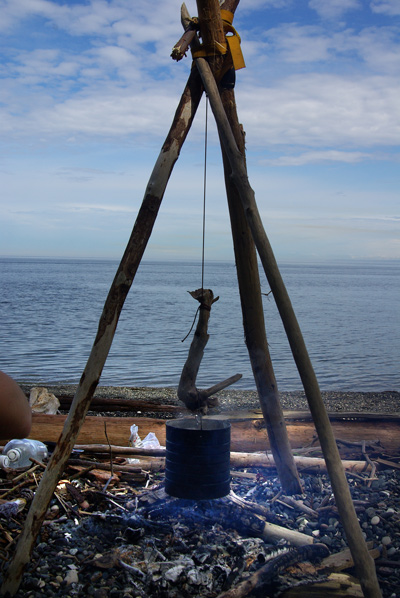
After the early crossing (anything earlier than 10am is an early crossing for these guys), a fire is built and water is boiled for oatmeal.
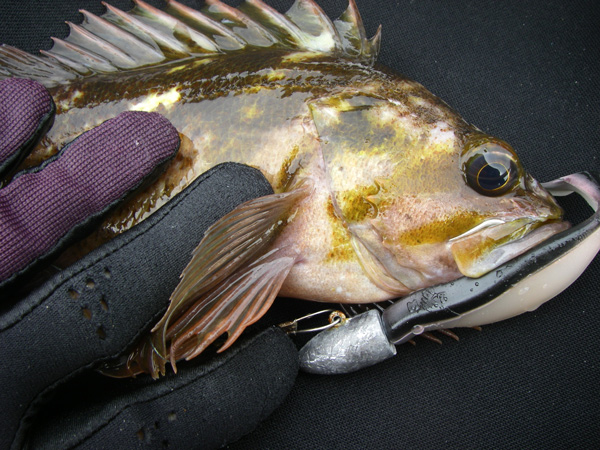
I paddle around the island to find a swarm of people fishing from motorboats, I briefly drop a line only to retrieve this tiny copper rockfish, I let him go only to see the boat next to me catch and keep him a few minutes later. Rock fish population along the entire west coast have collapsed but people are still allowed to fish. It makes me furious. I still fish near shore on the Oregon coast but I may even quit that. Everyone you talk to has some elaborate rationalization about how it's not really so bad or how it's not their problem.
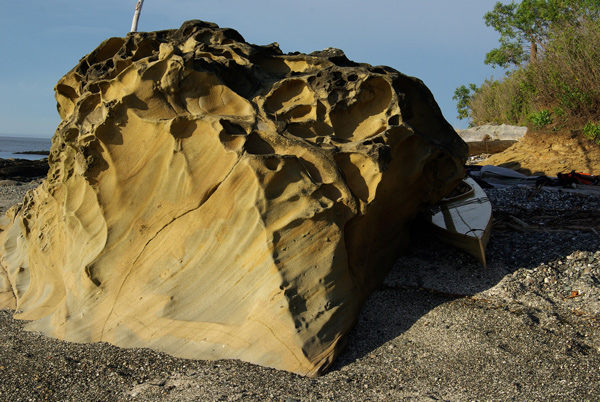
I paddle back to camp and stash my kayak behind and rock and wander over to see what other people are doing.
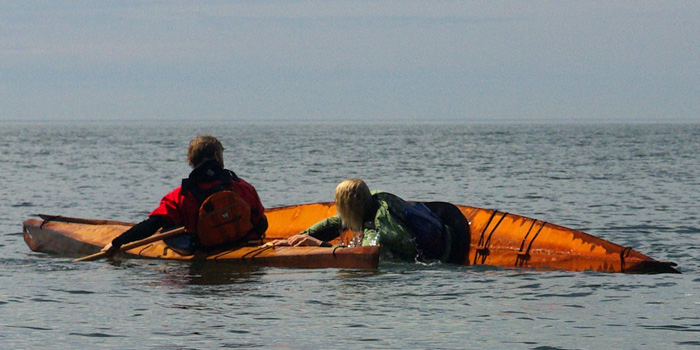
Noah and Jack are practicing rolls. I am impressed by their tenacity and wish this kind of motivation were more common.
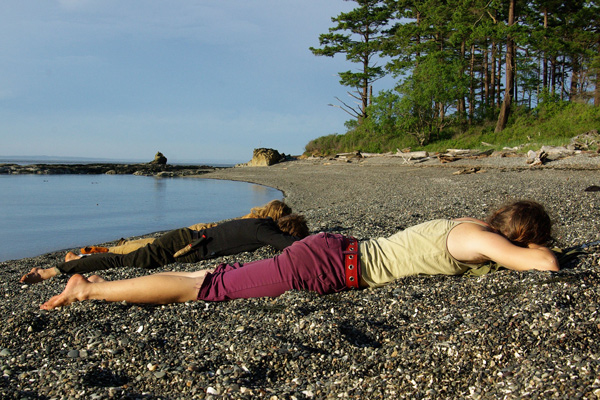
In the afternoon sun humans beach themselves to rest on these warm pebbles.
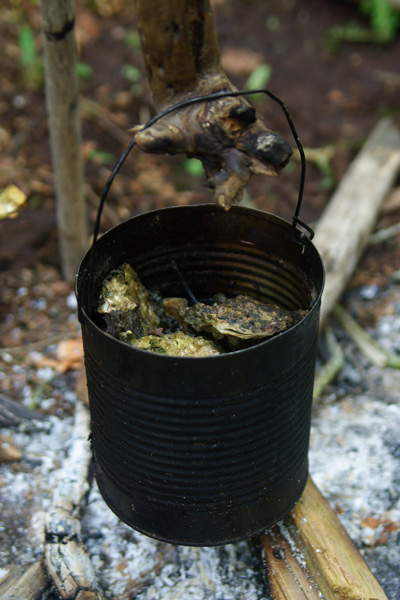
Back at camp someone has cooked up some oysters and mussels.
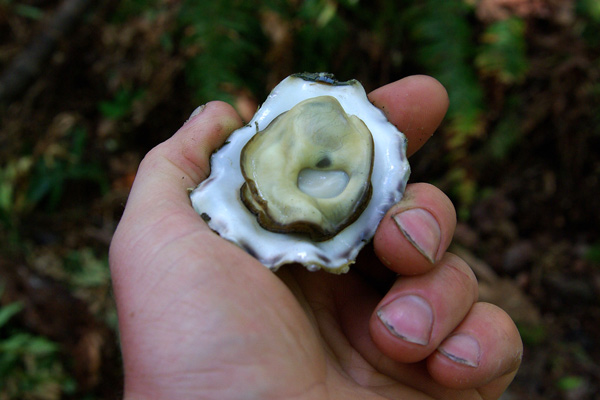
I like them much better cooked.
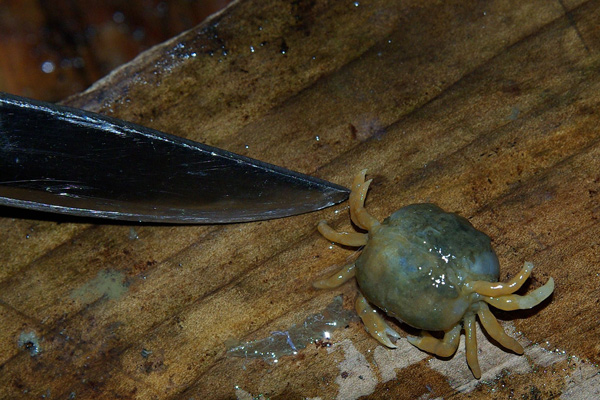
While shelling clams for dinner Kiliii discovered this tiny parasitic crab that lives inside a clam. It was the only thing that I've ever seen gross Kiliii out, and that's saying something about a a guy who will eat almost anything (whole mice, seagulls, roadkill).
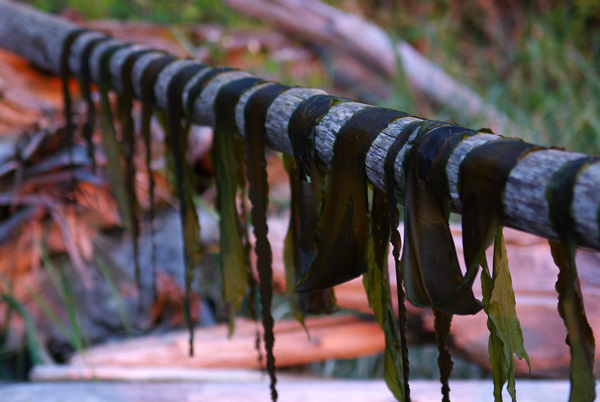
Seaweed drying over driftwood.
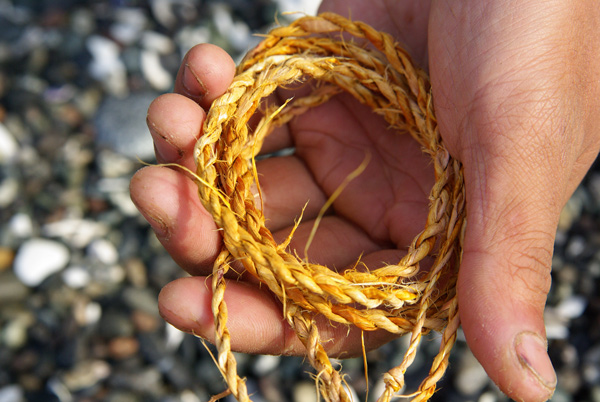
Kiliii stripped some bark off of a fallen cedar tree and showed me how to make this strong natural cord.
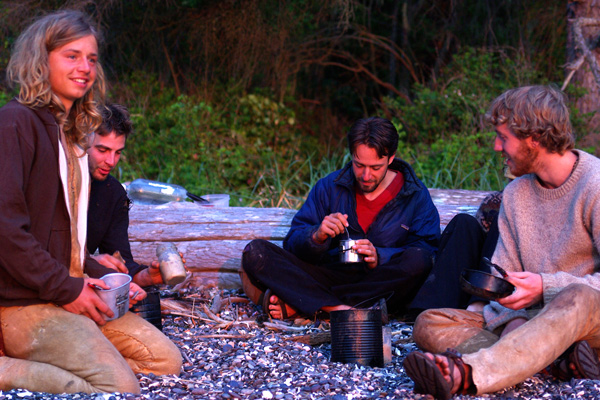
That evening we feast on two huge billy cans of fresh clam chowder.
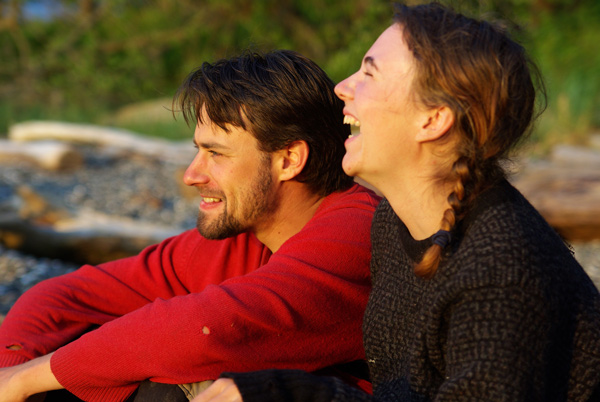
Thaddeus and Claire in perfect light.
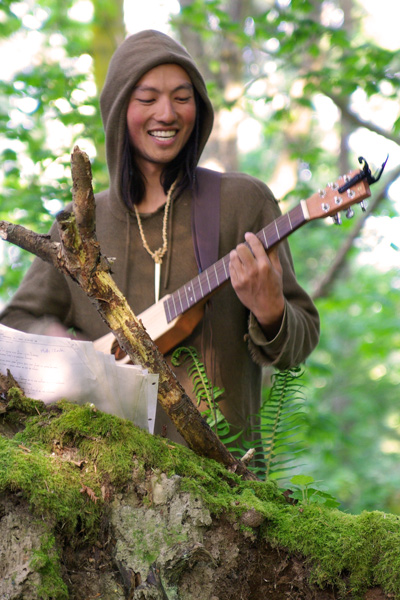
Kiliii entertains with his guitar.
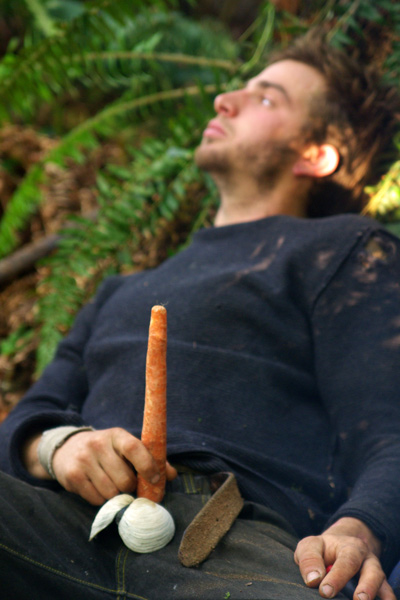
Zach entertains with, um, performance art.
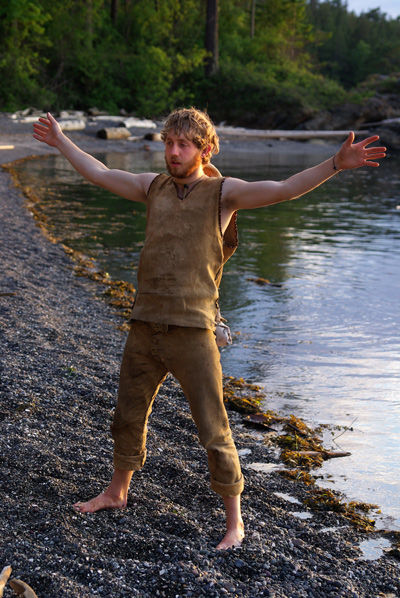
Jack declares his omnipotence.

Noah demonstrates the awesome power of the Kundalini.
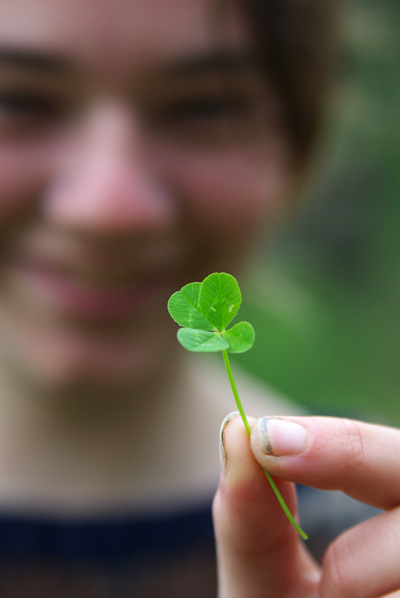
Claire shows us her luck with this clover.
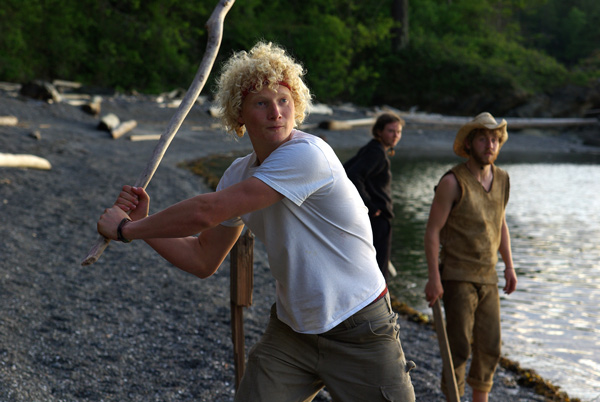
The ultimate evening pastime however is pebble baseball.
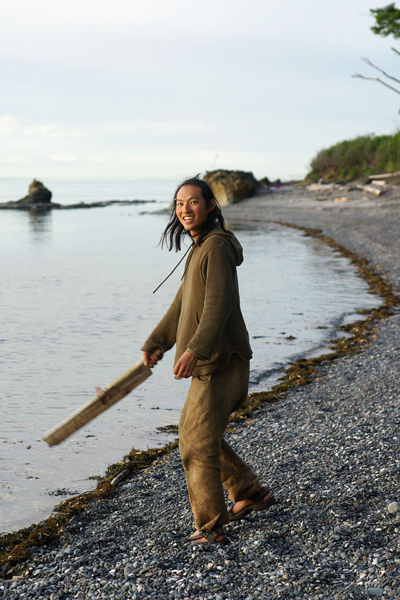
The sport is really irresistible and soon we are all whacking pebbles which make the most delicious zinging sounds when you hit them just right.
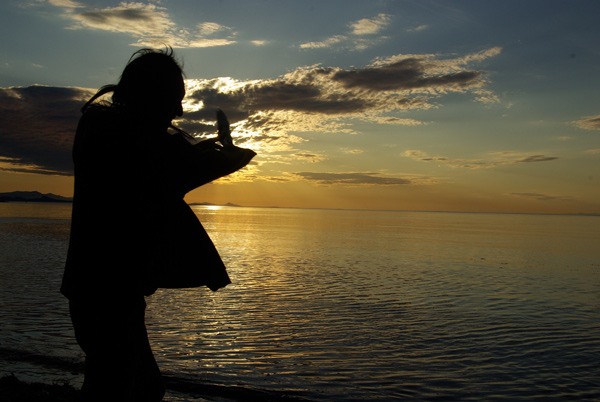
Kiliii blasts one into the sunset.
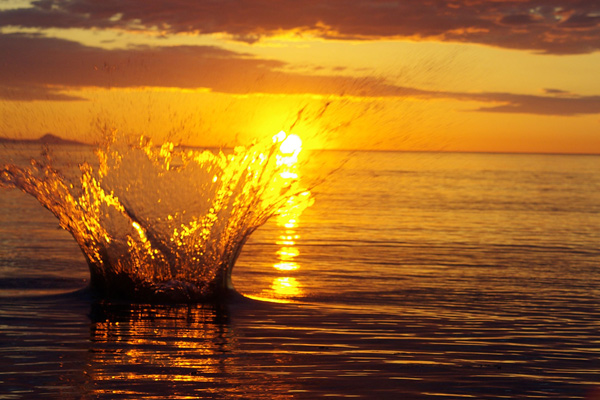
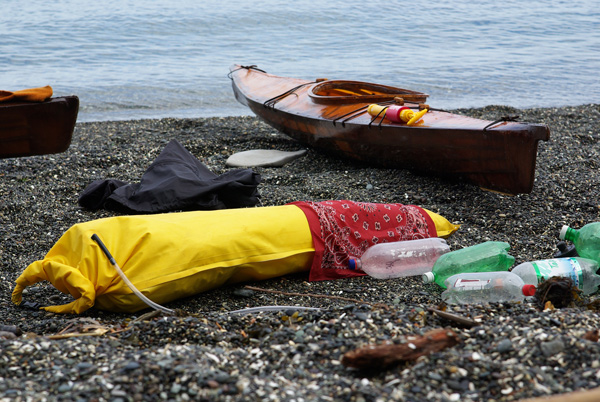
The next morning it's time to leave and we pack up. Kiliii and the interns still have five more days. Thaddeus and I have work to go to so we leave the group for a twenty-seven mile paddle back to the mainland. I leave all the charts and navigation gear with the group so inevitably we get a little lost on the way home.
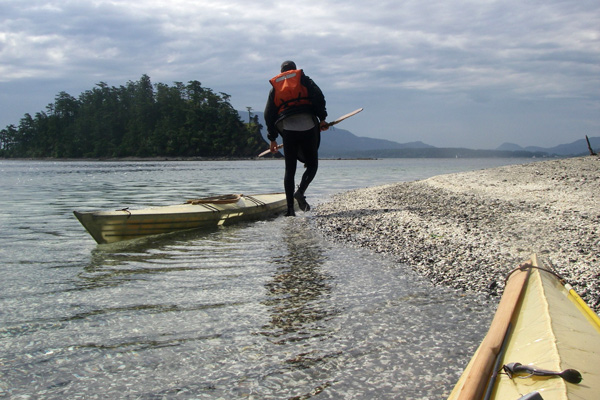
Conclusion: On this trip I learned useful native skills, a few edible plants, and gained a renenewed respect for the functionality of do-it-yourself paddling gear. Before the trip I even made my own tow belt, which cost me a fraction of a commercial belt and works just as well. On the trip I struggled to understand the value of wild food harvest, especially in places as heavily impacted as the San Juans. I did, however, appreciate the choice that wild food poses, when you eat wild you are directly responsible for the impacts of your activities. It would be like going to the grocery store and with each purchase you get all the gasoline and fertilizer that it took to make that product and then before you can eat it you have to go outside and dump that stuff down the storm drain, and afterwards you have to throw the packaging in your backyard. What is less ethical? Whereas I see local organic agriculture as the plausible future of food, wild harvest carefully practiced has a lot to offer both in the nourishment of our bodies and our minds. Also, many of our everyday products could be easily replaced with natural ones, decreasing our reliance on plastics and other toxic material and freeing us from the need to work to buy those products. Instead our time is spent making the cord/basket/pot/house/kayak/ect, and in doing so the thing becomes not only a finished, nontoxic product, but also the culmination of a series of relationships and experiences. This process of interaction breathes life into a world where the intermediary of currency has erased our connections to our resources and each other. In the search for wild food and the rediscovery of indigenous technologies we discover ourselves as citizens of nature as opposed to merely tourists.
back to Cape Falcon Kayak
N\